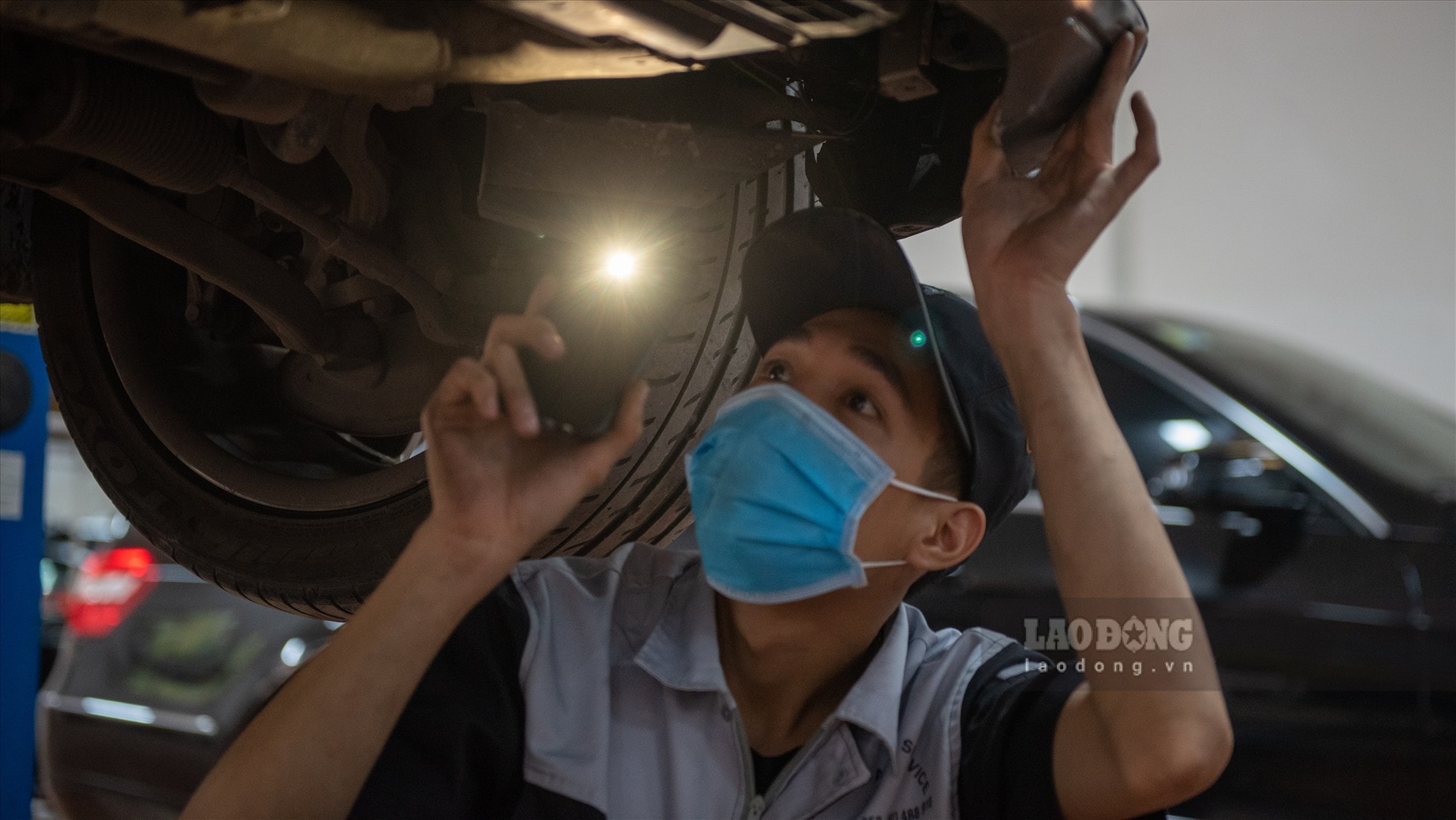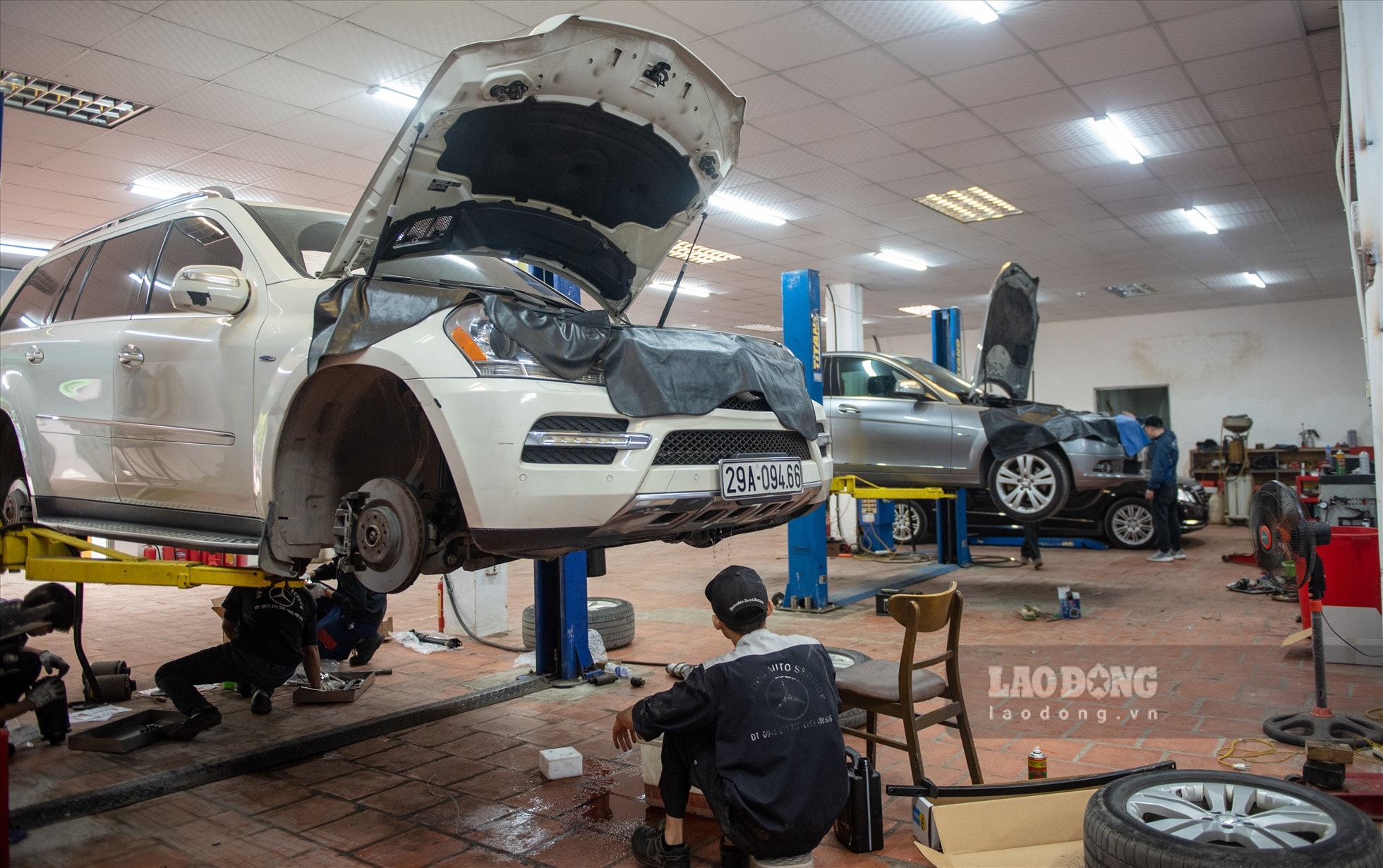What maintenance items do Toyota cars running over 80,000 km need?
Vehicle users need to periodically check, promptly detect damage, and perform maintenance to ensure the safety of the vehicle. Especially in the period of 80,000-100,000 km, popular Toyota models need to replace and maintain some details according to the manufacturer's recommendations.
 |
A car used over the years will inevitably experience wear and tear and damage to its parts. Photo: Khanh Linh |
Engine oil and oil filter
Engine oil is a part that the car needs to replace periodically every 5,000 km, the oil filter also needs to be replaced every 10,000 km. This is also a periodic maintenance check time and the car also needs to replace the lubricating oil as well as a new oil filter.
Fuel filter (gasoline filter), oilpower steering, coolant, spark plugs
These are the items listed in the list that need to be renewed every 40,000 km. Accordingly, the fuel filter on the car is recommended to be replaced every 40,000 km. After passing the 80,000 km mark, the car continues to need to replace this part so that the fuel supply system operates stably and the engine works reliably.
Also according to Toyota's maintenance schedule, power steering fluid needs to be replaced every 40,000 km. When the car has traveled more than 80,000 km, it is also time for the car to replace this fluid.
At the same time, after a long time of operation, the coolant will deteriorate and contain a lot of dirt, no longer working as well as at first and needs to be replaced.
Having to work continuously for a long time under harsh conditions, the spark plugs will wear out their poles, leading to poor ignition, fuel consumption and increased vehicle emissions. Spark plugs should be replaced every 40,000 km if the vehicle uses regular spark plugs and every 100,000 km if using Platinum or Inridium spark plugs.
Engine air filter and air conditioner filter
After every 40,000 km, the car also needs to replace 2 new air filters because when the engine air filter is dirty, it will directly affect the capacity, stable operation and fuel consumption of the engine.
 |
Near Tet is the time when car owners often have their beloved car serviced after 1 year of use. Photo: Khanh Linh. |
Gear oil, axle oil
For vehicles using automatic transmission, transmission oil is as important as engine oil. Transmission oil helps reduce friction and ensures working temperature in the transmission.
Failure to replace the transmission fluid on time can cause serious damage to the transmission and costly repairs later. Therefore, the manufacturer recommends replacing the transmission fluid and differential oil periodically every 80,000 km to ensure the vehicle operates well and protect the transmission parts.
Battery
A car battery usually lasts more than 2 years. Experts recommend replacing the battery after 40,000 km or 2 years of use. This means the car needs a new battery after 80,000 km.
Check the steering system
A faulty steering system causes unsafety and lack of driving feeling for the driver. To ensure the steering system always works well, car owners need to periodically check after 20,000 km to detect abnormalities and handle them promptly. Therefore, 80,000 km is also an important time to check this system again.
Check and maintain the cooling system
Refrigeration systems, like other systems, need to be checked periodically to promptly detect and prevent unwanted damage such as broken belts, broken clutches, leaking air pipes, refrigerant leaks...
Suspension system
The suspension system ensures that the wheels oscillate smoothly vertically relative to the body of the car, which gives the driver more confident control of the car and makes the passengers feel comfortable instead of feeling tired and stressed.
Wheel bearings
Wheel bearings use rolling friction, helping the wheel rotate more smoothly and gently when the vehicle is operating. After a period of use, the bearing can dry out the lubricating grease, leading to worn balls and ball bearings and making a screeching sound when the wheel rotates.


